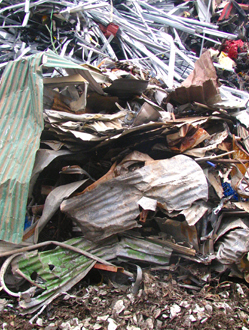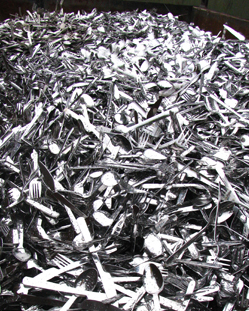http://artsonline.monash.edu.au/wfw/
Project Leader: Dr Ruth Lane (MU)
Research Team: Prof Tom Graedel (YU), Dr Barbara Reck (YU); Dr Xuan Zhu (MU); Dr Gavin Mudd (MU); Wayne Gumley (MU)
This program has components led by Monash University and Yale University respectively. The Monash project focuses on characterising the size, distribution and accessibility of existing above ground stocks, particularly those distributed in households and buildings in Australian cities. It will develop the best possible evidence of the quantity of accessible resources from above-ground stocks and characterise this resource in terms of accessibility, both geographically and socio-economically, through an investigation of the values involved in existing collection systems. Current social, economic, regulatory and logistical challenges for collection are reviewed in order to propose realistic measures for addressing these. Data collection is based around (1) case studies of household electronics focussing on computers and TVs, mobile phones, hand held batteries that are distributed across Australian cities, (2) metals in buildings in Australian cities (especially steel, copper and zinc), and (3) analysis of organisations involved in existing collection systems for used electronics and scrap metal. The guiding research questions for the Monash project are:
- What is the size, character and distribution of the potential resource of recyclable electronics in households and buildings in Australian cities?
- What is the current rate of flow of recyclable electronics in Australian households?
- What values or incentives affect patterns of acquisition and disposal of household electronics?
- What factors affect the availability of recyclable scrap metal from buildings in Australian cities?
- What types of organisations and activities are involved in collection and processing of recyclable electronics and scrap metal?
- What factors influence the efficiency of collection systems and the quantities of materials they are able to process?
Estimates of Australian metal reserves both in mines and above the ground will be conducted through a collaboration between the two universities. While Monash’s focus here lies on estimating the mining reserves for major metals and their by-products, Yale will provide national estimates on Australia’s above-ground stocks for major and specialty metals, yet without the spatial disaggregation that Monash will develop. This in-use stock information will be based on historic timelines that can be used for the future to estimate when these above-ground stocks will become available for recycling. To help prioritize future recycling efforts, Yale will also conduct a national-level criticality analysis for various metals. Finally, a scenario analysis will illustrate possible future evolutions of metal supply and demand within Australia and its partners.
The deliverables for Program 2 are:
- An interactive atlas for recyclable resources in Australian cities that facilitates scenario modelling for future environmental impacts and
- A detailed appraisal of existing collection systems with recommendations for enhancement.
- Comparison of environmental costs associated with future scenarios for recycling versus virgin metals based on life cycle assessment methods
Dr Ruth Lane: 03 9905 2937; ruth.lane@monash.edu
Prof Thomas Graedel thomas.graedel@yale.edu, and Dr Barbara Reck barbara.reck@yale.edu



